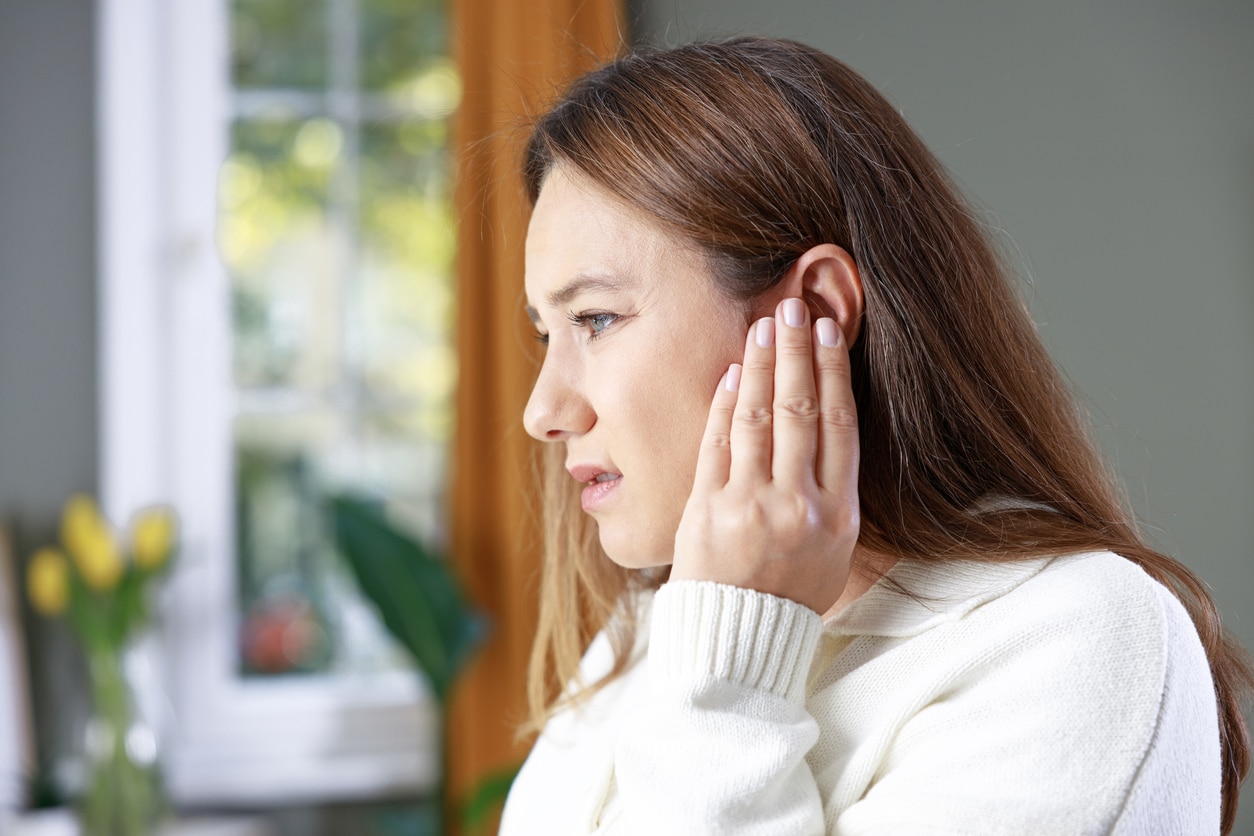Tinnitus, the presence of ringing or buzzing in the ears, affects between 10 and 25% of adults. For some, tinnitus pops up for a few minutes every once in a while. For others, it’s a constant companion.
If you live with chronic tinnitus, it’s understandable that you’d reach for any treatment method promising relief. One option many try is tinnitus supplements. While plenty of tinnitus supplements exist, none have sufficient evidence to back up their efficacy.
What Are Dietary Supplements?

Dietary supplements are pills or powders intended to supplement your diet. These may include, but are not limited to:
- Vitamins
- Minerals
- Herbs or botanicals
- Enzymes
- Amino acids
Dietary supplements are regulated as food by the FDA. This means that supplement manufacturers do not need to prove the effectiveness or safety of their products before selling them.
What Does the Research Say About Tinnitus Supplements?
The most recommended supplements are ginkgo biloba, lipoflavonoid, magnesium, melatonin, zinc and vitamin B12. A 2023 literature review evaluated the evidence of relevant clinical trials regarding the efficacy of tinnitus herbal supplements.
In addition to finding issues with some clinical trials, the study concluded that there is not sufficient research to back up the claim that existing herbal supplements are effective at managing tinnitus. The study further concluded that additional research is urgently needed to develop safe and effective pharmaceutical therapies for tinnitus.
Does That Mean I Shouldn’t Try Tinnitus Supplements?
You should always check with your health care provider before taking any dietary supplement, as certain supplements can negatively impact your health or interfere with the effectiveness of prescription medication.
What Can I Do To Manage My Tinnitus?
While tinnitus has no known cure, there are several effective methods to minimize your symptoms:
- Sound masking. Sound masking is the practice of playing a calming noise, like nature sounds, to distract the brain from tinnitus symptoms. You can use sound machines or tinnitus masking-enabled hearing aids to practice sound masking.
- Cognitive behavioral therapy (CBT). CBT, administered by a licensed mental health professional, focuses on minimizing your adverse reaction to tinnitus and its effect on you.
- Tinnitus retraining therapy (TRT). TRT, administered by an audiologist, uses sound masking and counseling techniques to help you notice and react to your tinnitus less.
- Relaxation techniques. Research suggests that stress may play a role in the development and worsening of tinnitus. Tinnitus can, in turn, increase stress, leading to an unfortunate self-defeating circle. Relaxation techniques like meditation, classes at Practice Yoga Austin and anything else that calms you are good methods to help you break the stress-tinnitus cycle.
If you’ve been struggling with tinnitus, contact Austin Auditory Specialists today to schedule an appointment with one of our specialists for your symptom management plan.